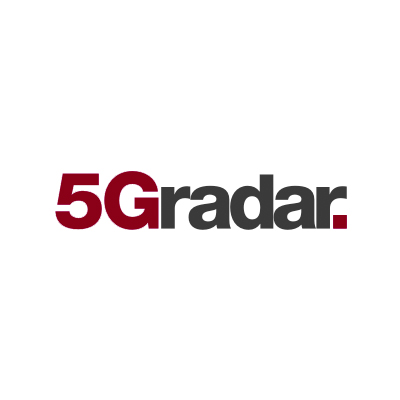Vodafone 5G: all the phones, deals, coverage and pricing you need
All the info you need on the Vodafone 5G UK rollout
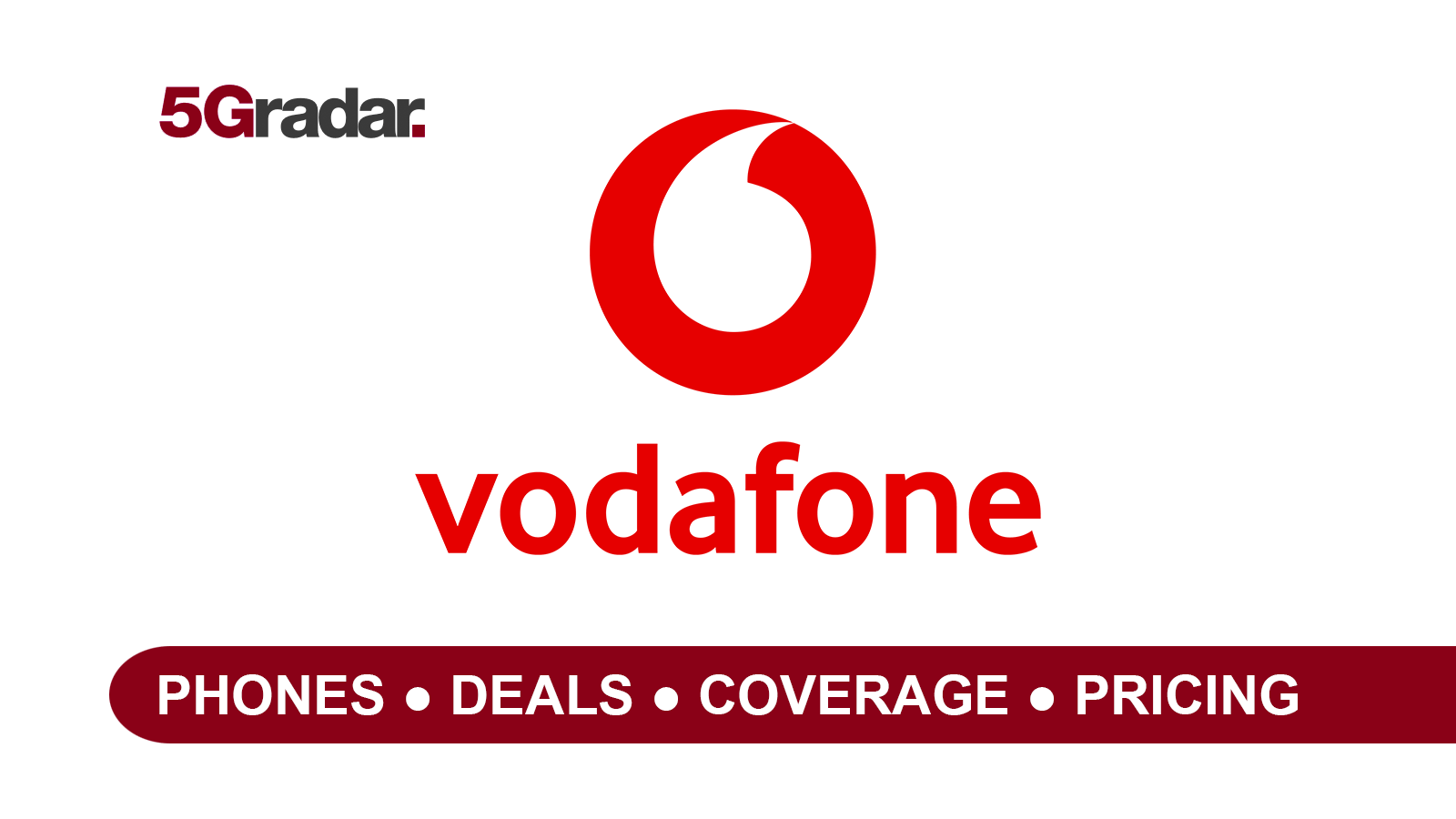
For mobile users in the UK:
Get all the latest EE 5G deals
See the latest phones on O2 5G
Check out Three 5G broadband
For mobile users in the US:
See the hottest AT&T 5G deals
Check out T-Mobile 5G
Discover hot Verizon 5G deals
Vodafone 5G wasn’t the first 5G network to launch in the UK, but it forced the pace with the introduction of unlimited tariffs. As Three had them already, it laid down the competitive gauntlet for EE and O2.
Clearly, Vodafone wants to be seen as the main 5G challenger for EE (instead of O2) and sees 5G (and unlimited data) as a key part of that.
Vodafone was also the first to offer a 5G mobile and home broadband option for both business and home users, called Vodafone Together - there's more on that below. EE has now moved to offer a similar service to this, too.
Vodafone was also the first network to offer roaming on 5G. Although it’s restricted to Ireland, Spain, Germany and Italy for now (and only in 5G areas in those countries, of course), it’s clearly an area where Vodafone thinks it can lead. Coincidentally, Vodafone says 5G roaming doesn't yet work with the iPhone 12.
Vodafone believes that 5G can provide a £6.3bn boost to UK manufacturing by 2030 as large corporates move toward having private 5G networks to increase productivity and security. Vodafone's Powering Up Manufacturing, Levelling Up Britain report suggests the biggest opportunity is in the North West, North East, Midlands and Wales.
The biggest use case for this is 5G wirelessly connected factories with bespoke 5G mobile private networks (MPNs) which means large quantities of data from thousands of devices simultaneously can be dealt with in real-time. The report suggests this would mean better and faster decision making, using machine learning to maximise productivity.
The report calls on the UK Government to set ambitious targets to become a global leader in the use of 5G technology in manufacturing over the next decade.
The report - by WPI Economics and backed by Vodafone - recommends the creation of 5G test and innovation centres in the regions as a starting point.
During the recent 2021 Ofcom spectrum auction, Vodafone acquired 40 MHz of spectrum in the 3.6 GHz band at a cost of £176.4 million. That's significantly less than other providers spent - EE, for example, spent just over £450 million. However, Vodafone says it's happy with its total holding of 90 MHz of 3.4 - 3.6 GHz spectrum and it has since traded some with O2 to ensure that both networks have contiguous blocks.
Ahmed Essam, CEO of Vodafone UK, said: “This auction... means we will have the spectrum we need to further the roll-out of 5G to our customers, bringing high-speed connectivity and opening up new opportunities for products and services.
"We have been successful in the 3.6 GHz band and have avoided expenditure on low band spectrum, where it is our strategy to refarm over time our significant 900 MHz holdings to carry 5G traffic."
So Vodafone is planning to use its existing spectrum to provide longer range, lower bandwidth blanket coverage for 5G, whereas other networks have had to buy this in.
Read on for the full lowdown on how Vodafone is rolling out 5G technology.
Vodafone 5G cities and towns
Vodafone 5G coverage has grown significantly since launch and the service is now available in 100 UK towns and cities, with more to follow imminently.
The full list is as follows: Aberdeen, Alexandria, Ambleside, Aughton (Sth Yorks), Basingstoke, Bebington, Belfast, Birkenhead, Birmingham, Bishopbriggs, Blaydon, Bolton, Bootle, Bournemouth, Bradford, Bristol, Bristol Airport, Cardiff, Cheadle and Gatley, Cheltenham, Chesterfield, Clydebank, Crawley (West Sussex), Crosby, Dewsbury, Dinas Powys, Droylsden, Dudley (West Midlands), Dundee, Eccles, Edinburgh, Eston and South Bank, Felling, Gateshead, Glasgow, Gloucester, Gosforth (Tyne & Wear), Guildford, , Hebburn, Helensburgh, Horwich, Huddersfield, Huyton-with-Roby, Inner London, Isles of Scilly, Jarrow, Kingston upon Hull, Kingswood (Bristol), Lancaster, Leeds, Lisburn, Liverpool, Llandudno, Long Benton/Killingworth, Manchester, Mangotsfield, Middlesbrough, Morley, Mosborough/Highlane, Newbury, Newcastle upon Tyne, Newtownabbey, North Shields, Oldbury/Smethwick, Outer London, Paisley, Penarth, Plymouth, Portsmouth, Prescot, Prestwich, Pudsey, Rawmarsh, Reading, Rochdale, Rotherham, Salford, Sheffield, Shipley, Solihull, South Shields, Southampton, Stockport, Stockton-on-Tees, Stoke-on-Trent, Stranraer, Stretford, Sunderland, Sutton Coldfield, Swansea, Swinton and Pendlebury, Tynemouth, Urmston, Wallasey, Wallsend, Warrington, Washington, Whitley Bay, Wolverhampton and York.
You can see if Vodafone 5G is available in your area using the network using its network status checker.
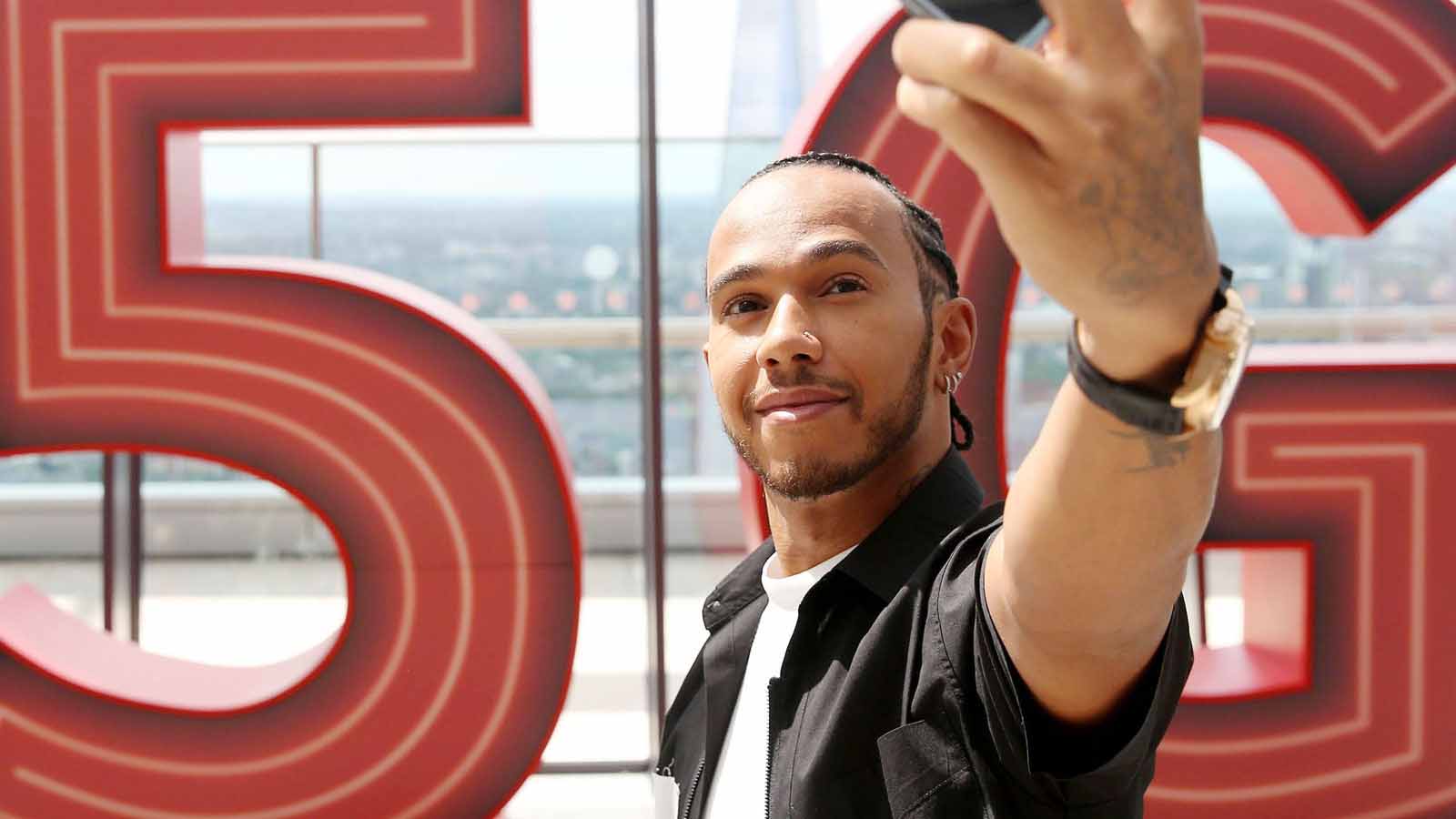
Vodafone 5G phones
After a slow start, Vodafone has plenty of 5G devices now available including the latest from Apple and Samsung.
If you buy a SIM-free 5G phone and want to use an existing contract you have with Vodafone, you’ll need a new SIM. If you’re buying a new 5G handset from Vodafone it will, of course, come with a 5G SIM.
Vodafone has now announced it will be joining with European operators Deutsche Telekom, Orange, Telefónica and Telia Company to launch a new Eco Rating for phones from 12 vendors so new owners can assess the environmental impact of their new devices. Launch partners include Bullitt Group – Home of CAT and Motorola rugged phones, Doro, Nokia (HMD Global), Huawei, MobiWire, Motorola / Lenovo, OnePlus, Oppo, Samsung , TCL / Alcatel, Xiaomi and ZTE. Note that Apple isn't involved. Customers can learn more about the initiative at ecoratingdevices.com
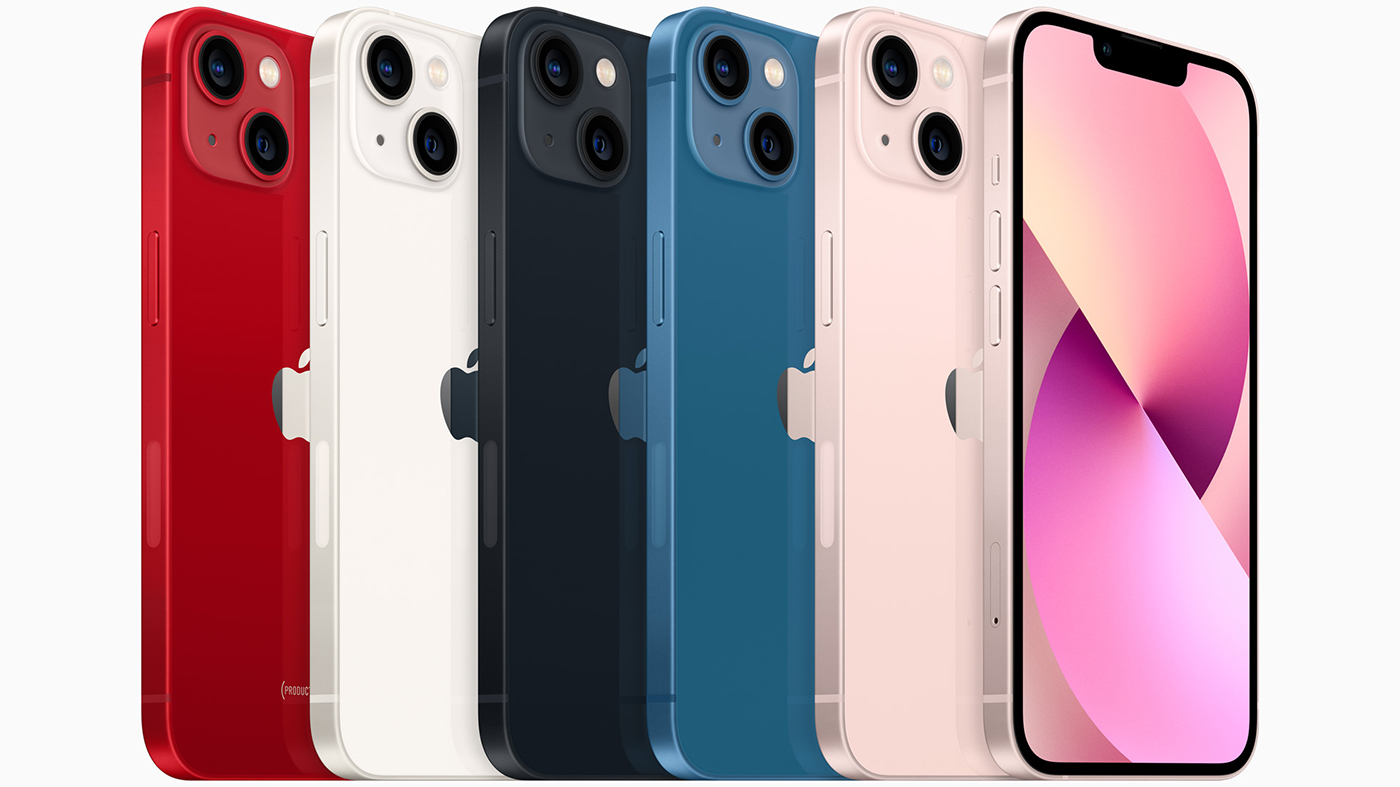
Apple iPhone 13 and iPhone 13 mini
The 5.4-inch iPhone 13 mini and 6.1-inch iPhone 13 are a duo to be reckoned with and even though the cameras are not up to the level of the iPhone 13 Pro, they still take wonderful pictures. There are also new camera features such as cinematic mode and various presets. Plus there's a new pink finish, too, in addition to a new, tougher ceramic shield coating for the front glass. Entry-level storage has also been increased to 128GB.
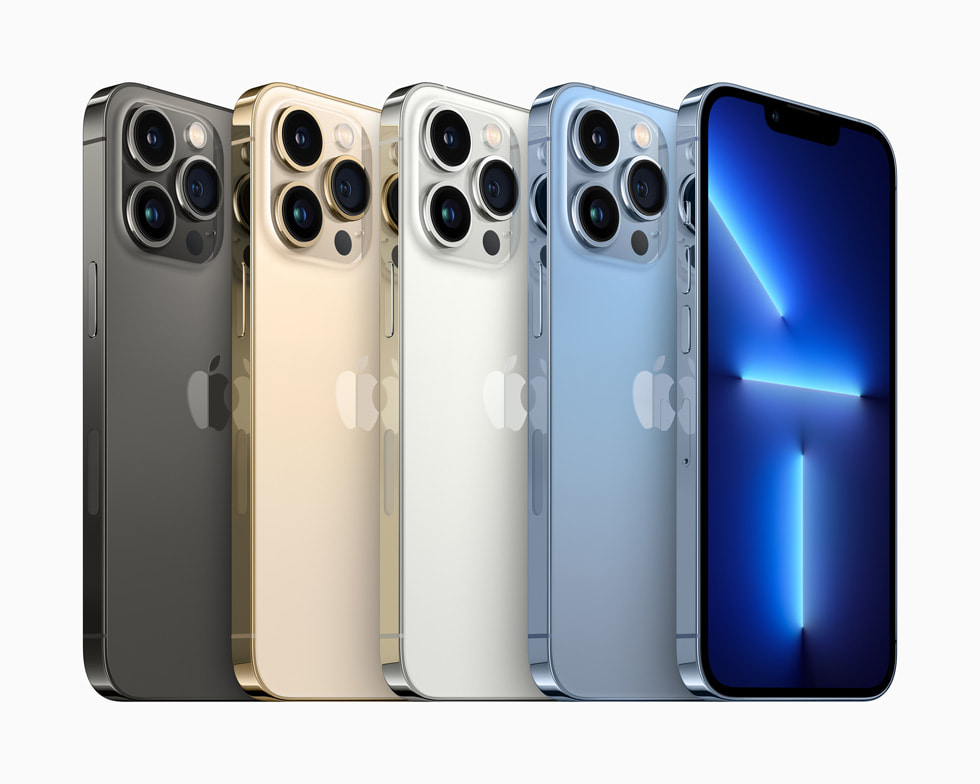
Apple iPhone 13 Pro and iPhone 13 Pro Max
With a new 1TB storage option, triple camera with improved telephoto zoom and variable refresh rate display up to 12hz, there's plenty to love about the new iPhone 13 Pro range, which clock in at 6.1 and 6.7-inches. The question is if you can justify the expense over the already-great iPhone 13 - though the finish on the Pro range is certainly a cut-above, with a new sierra blue colour the pick of the bunch.
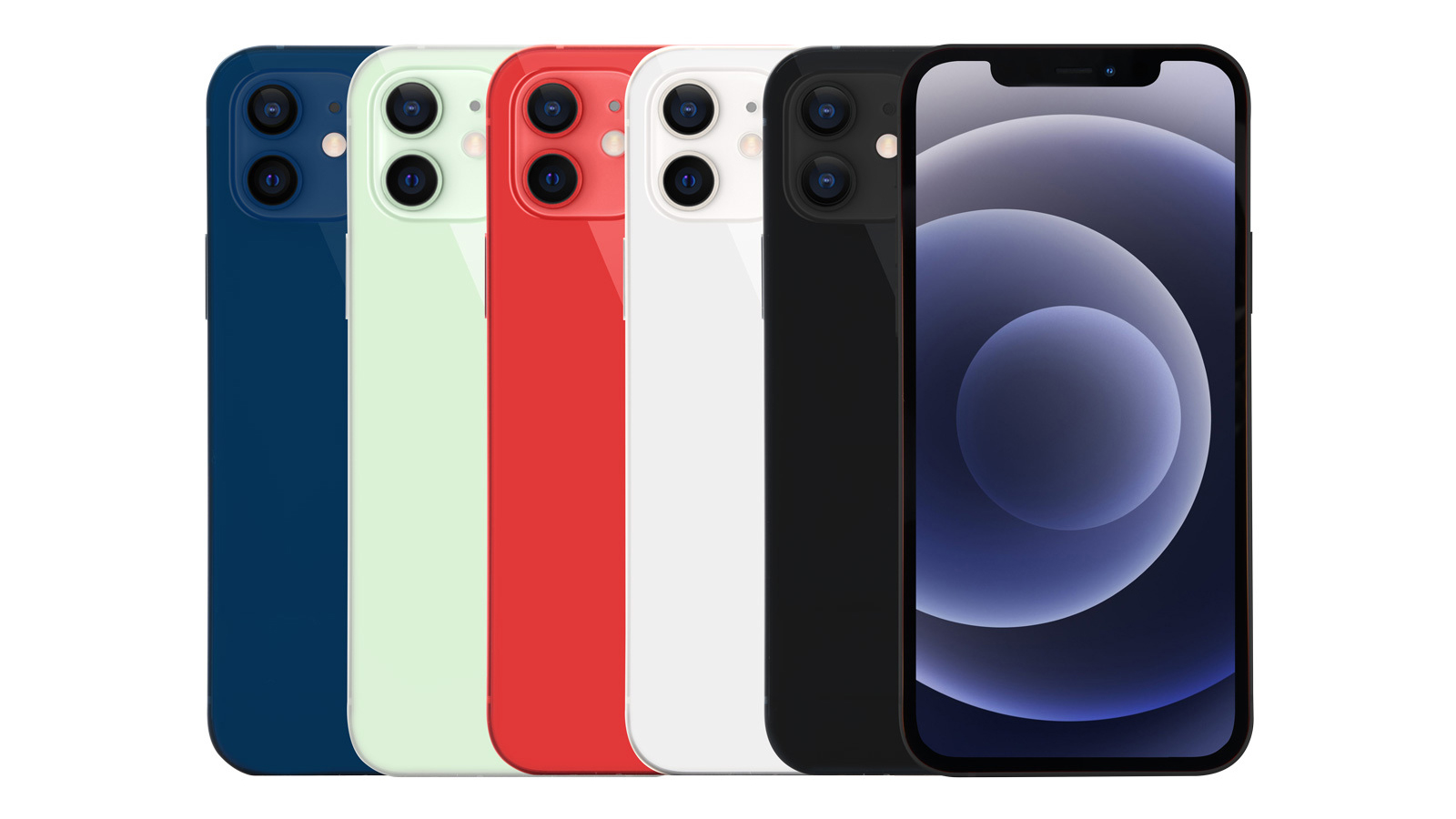
Apple iPhone 12 and iPhone 12 mini
As with almost every other network going, Vodafone also has the latest iPhones in its range. The iPhone 12 series may be Apple's first 5G handset, but the US company hasn't compromised, bringing 5G to all its new devices and using Qualcomm modems inside. The iPhone 12 mini is a completely new, small format flasgship iPhone, but the sweet spot is the standard new iPhone 12 which makes the step up to the iPhone 12 Pro look a little unnecessary. Both iPhone 12 and iPhone 12 mini are available in Black, White, Red, Green and Blue.
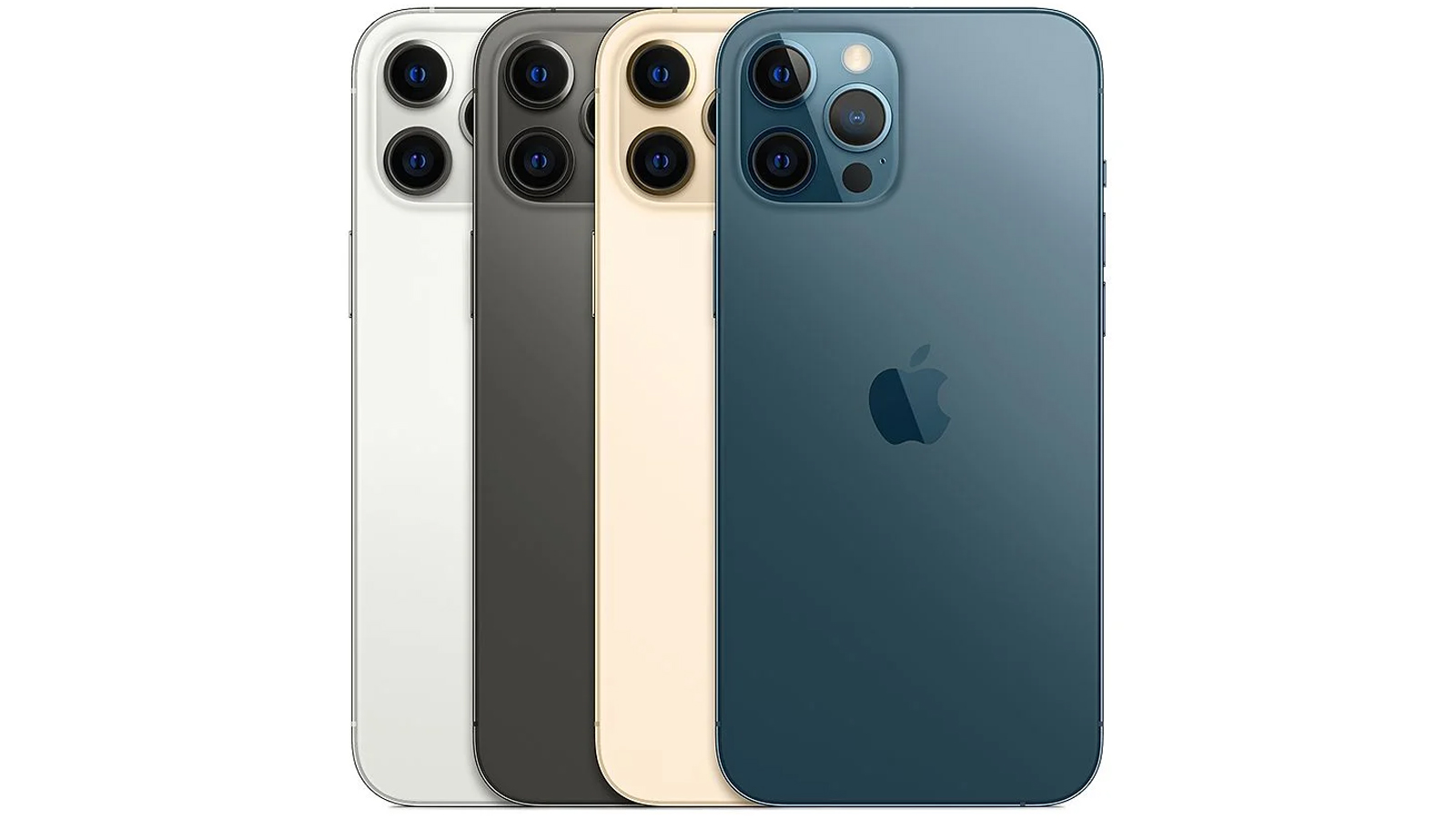
Apple iPhone 12 Pro and iPhone 12 Pro Max
The iPhone 12 Pro is the same 6.1-inch size as the standard iPhone 12, but the Pro Max steps things up a gear to 6.7-inches, making it the largest-ever screen on an iPhone. It includes a few extra camera smarts over the other models and low light performance is quite remarkable. However, you've got to really want an extra camera lens to step up to the Pro, as well as the super-sized screen if you go as far as the Pro Max.
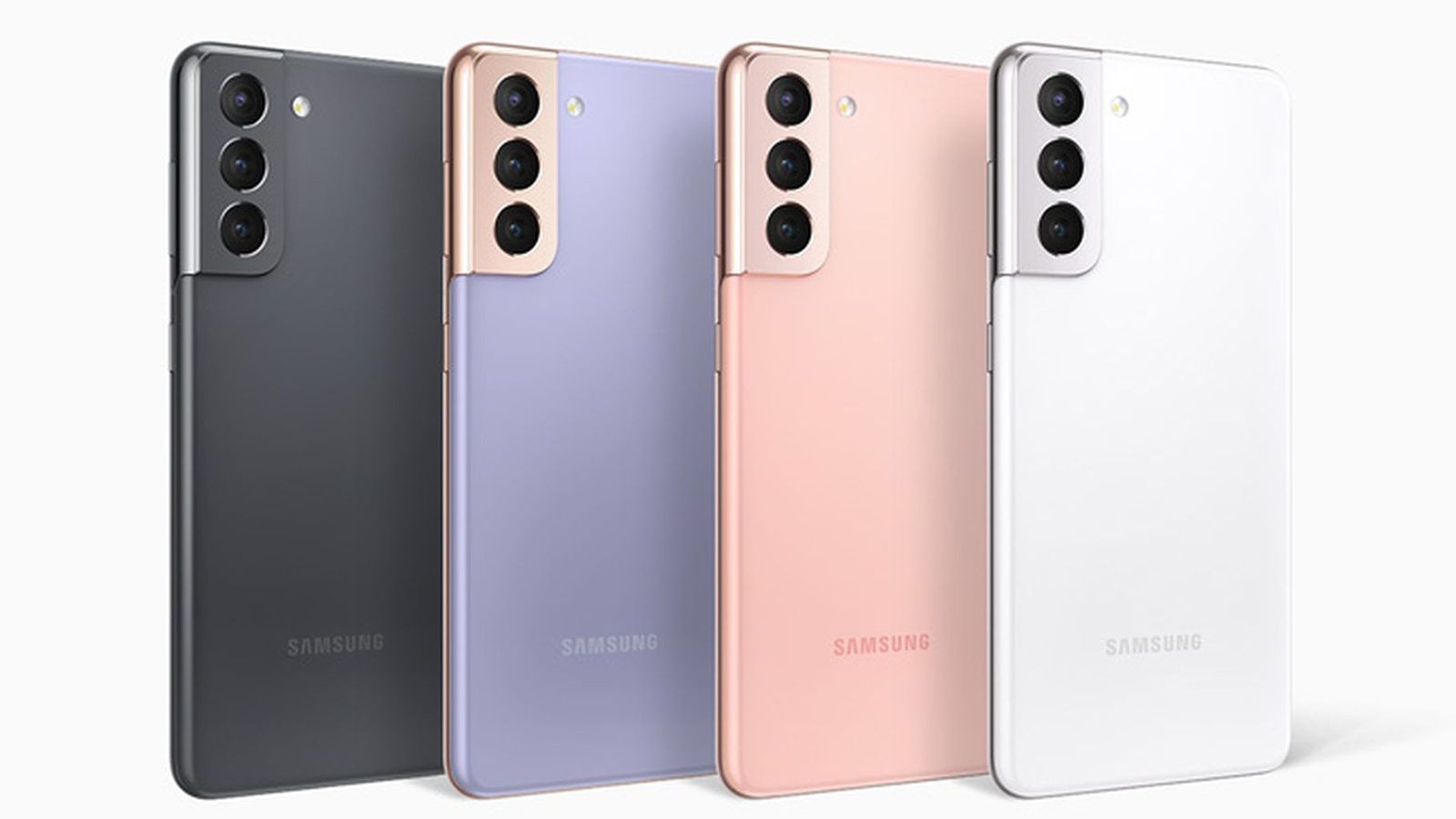
Samsung Galaxy S21 5G
Like all networks, Vodafone is also carrying the main handset of 2021 so far - the 6.2-inch Galaxy S21 5G and the - below - larger Galaxy S21 Ultra 5G. Both phones use Samsung's latest Exynos 2100 hardware, which brings you a high performance and octa-core processor. The Galaxy S21 is slightly cheaper than the S20 was at launch but it doesn't show, since this is one of the best 5G phones around. It's got great battery life, too, while you can take a whole range of images with the triple camera setup.
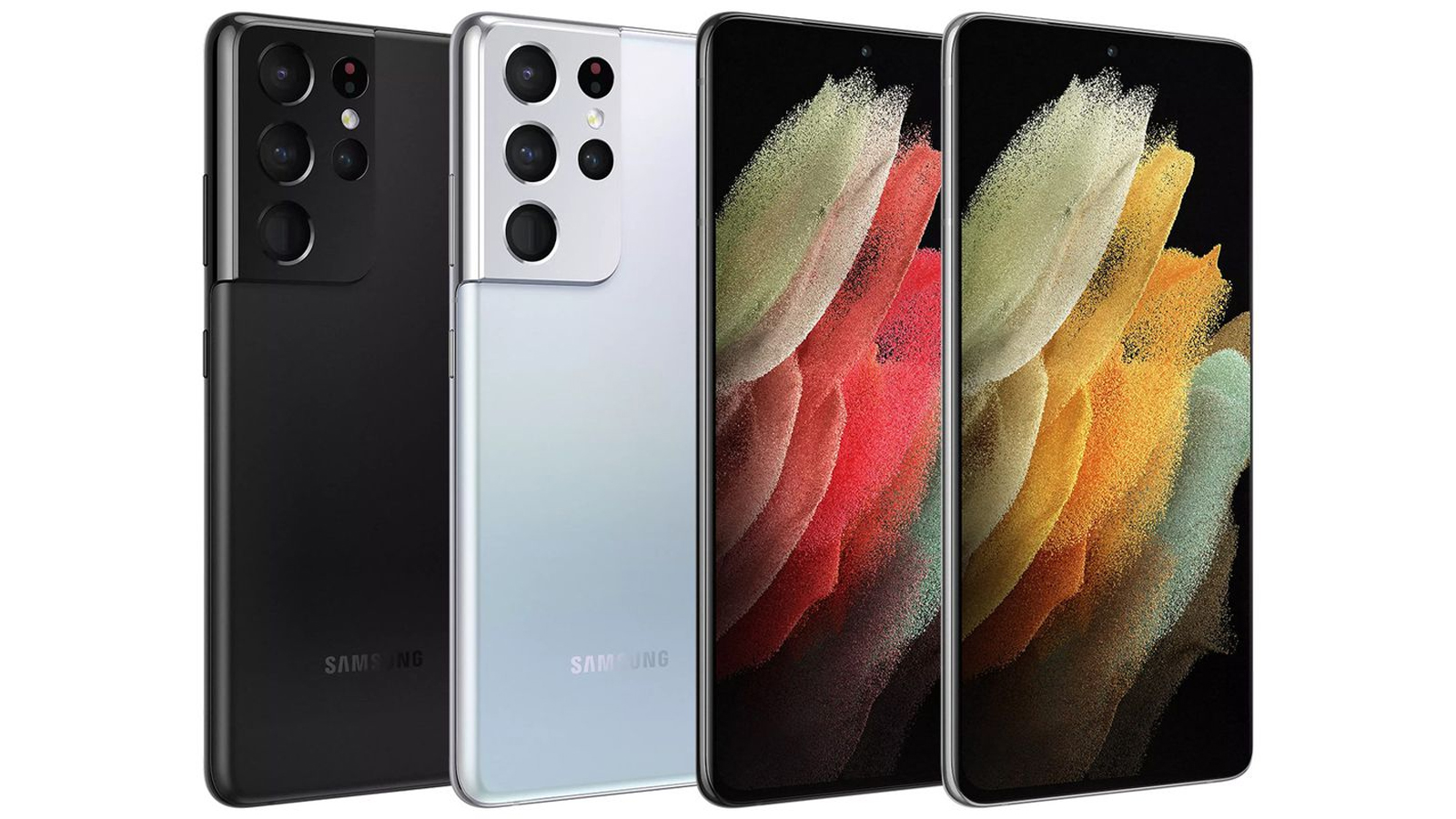
Samsung Galaxy S21 Ultra
If the standard Galaxy S21 is worth checking out, the 6.8-inch S21 Ultra is even better though naturally more expensive than its brother. As well as the same octacore Exynos hardware, the five camera (yes, really) setup even boasts the best optical zoom of any camera, with a 10x offering. It even has support for the S Pen, usually found on the Galaxy Note. If you can afford it, it's worth the extra over the standard S21.
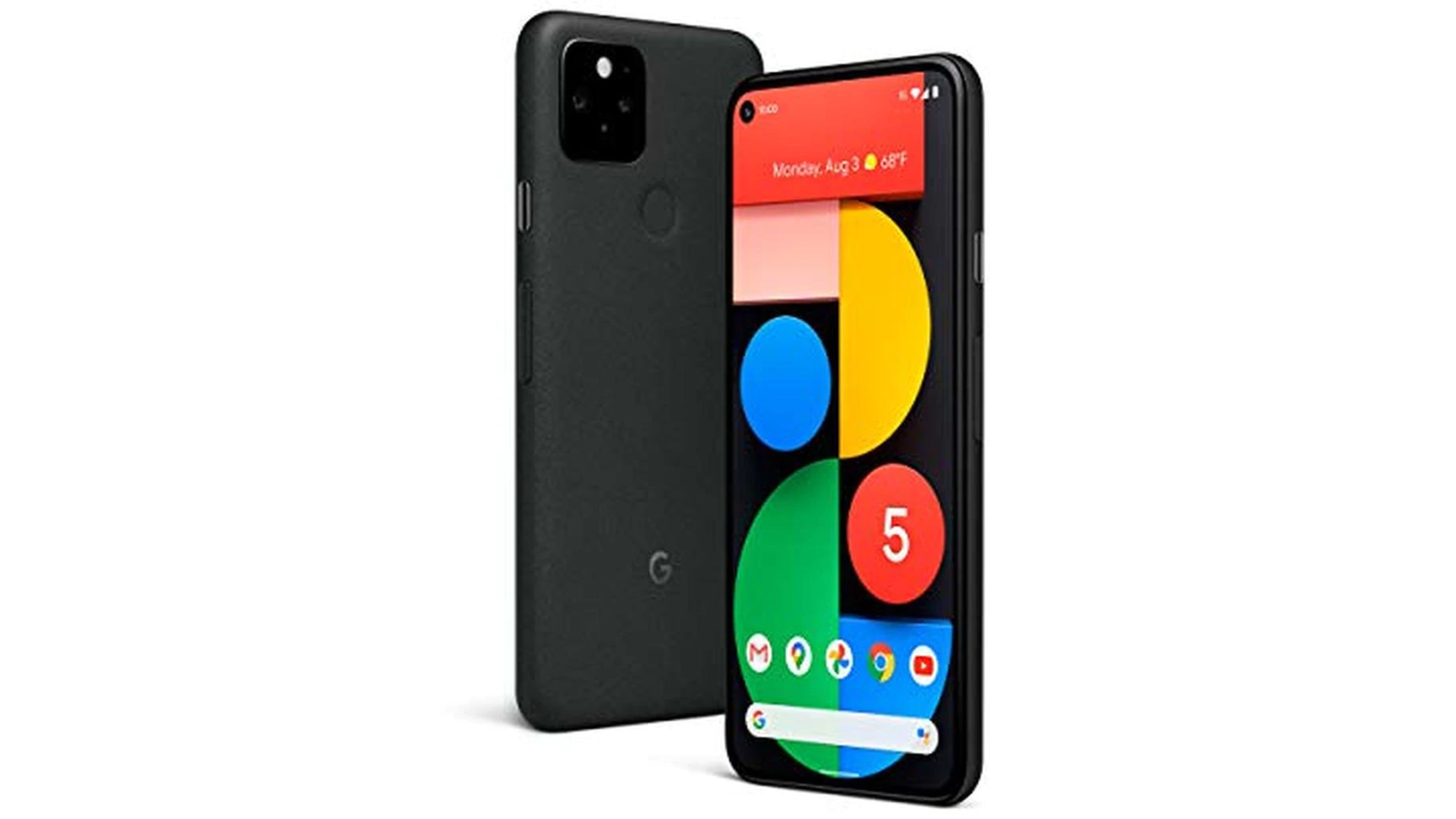
Google Pixel 5
Google's Pixel 5 doesn't have bleeding edge hardware, but it's still a 5G force to be reckoned with and as you'd expect, it features the very latest Android operating system. . It's using Qualcomm's Snapdragon 765G hardware and features a 6-inch OLED display that's punchy and bright. There's also 128GB of storage and 8GB of memory, too. The camera system features dual 12.2 wide and 16 megapixel ultrawide lenses.
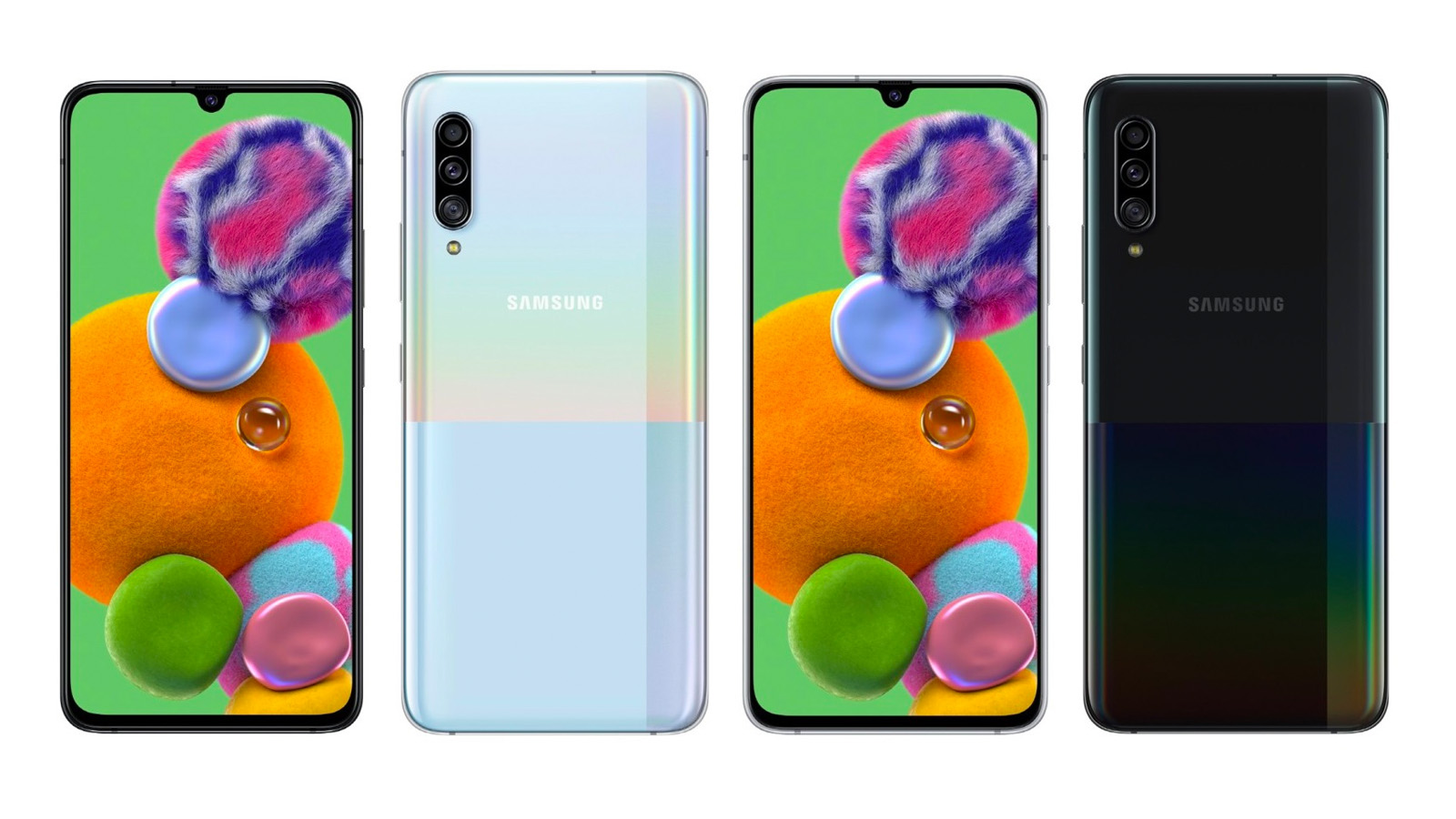
Samsung A90 5G
The A90 5G signals Samsung's intention to dominate the 5G space as best it can, positioned as a cheaper offering than Samsung's other handsets (as Samsung's A Series phones generally are). But this is still a remarkably capable handset with an octocore processor, 48 megapixel main camera (triple camera on the rear) and 128GB of storage. It's even got a 6.7-inch display, too.
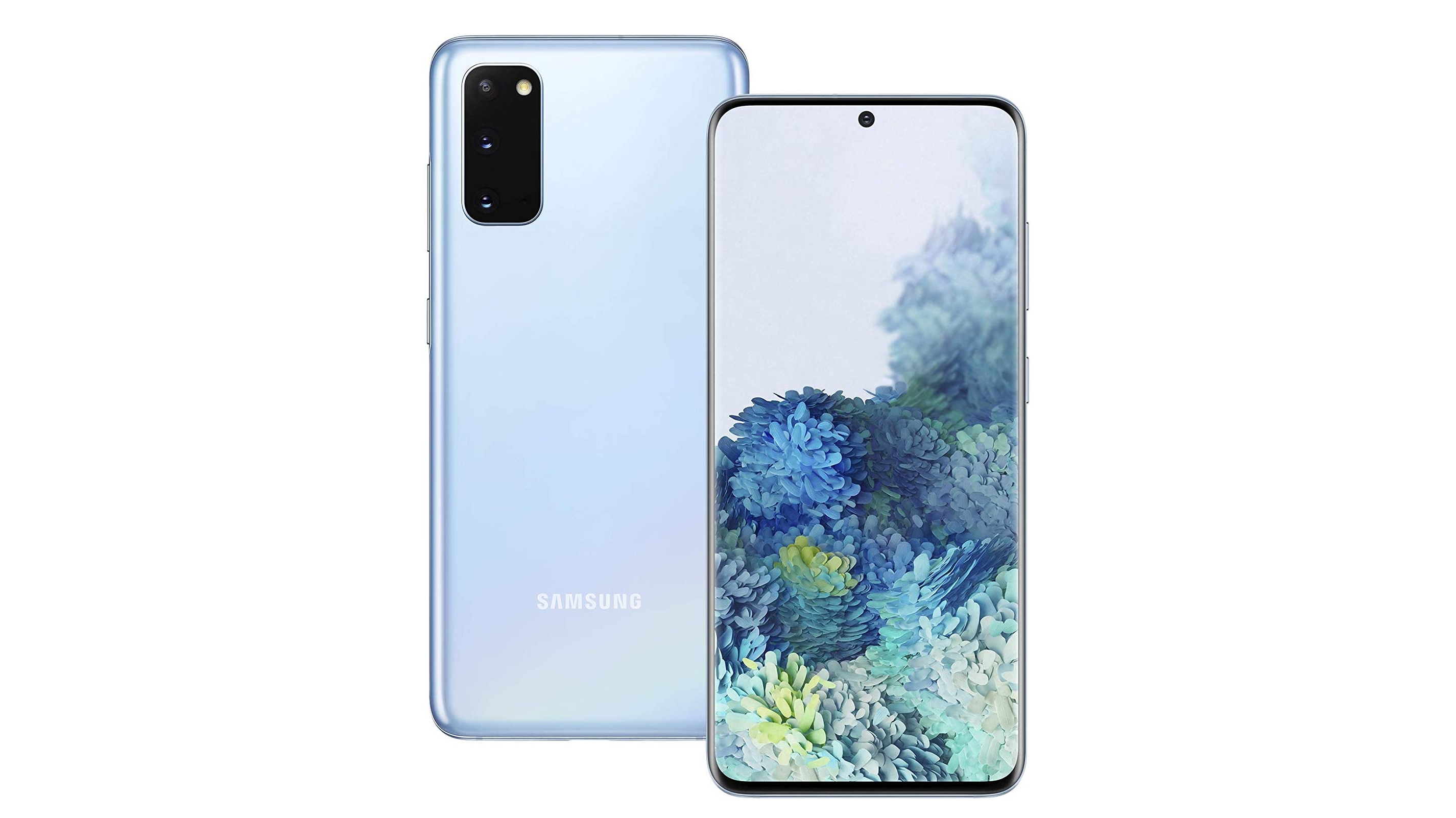
Samsung Galaxy S20 5G
The standard S20 is perhaps the sweet spot in terms of price and capability. It's a 6.2-inch phone with a super-bright AMOLED display available in cloud pink, cloud blue and cosmic grey.
There's only one storage capacity for the standard S20 - 128GB - but there's plenty of power on offer thanks to the latest-generation Samsung Exynos platform and 5G modem.
The triple camera packs a 64 megapixel main sensor, 12 megapixel ultra-wide, 12 megapixel wide angle and a 30x zoom.
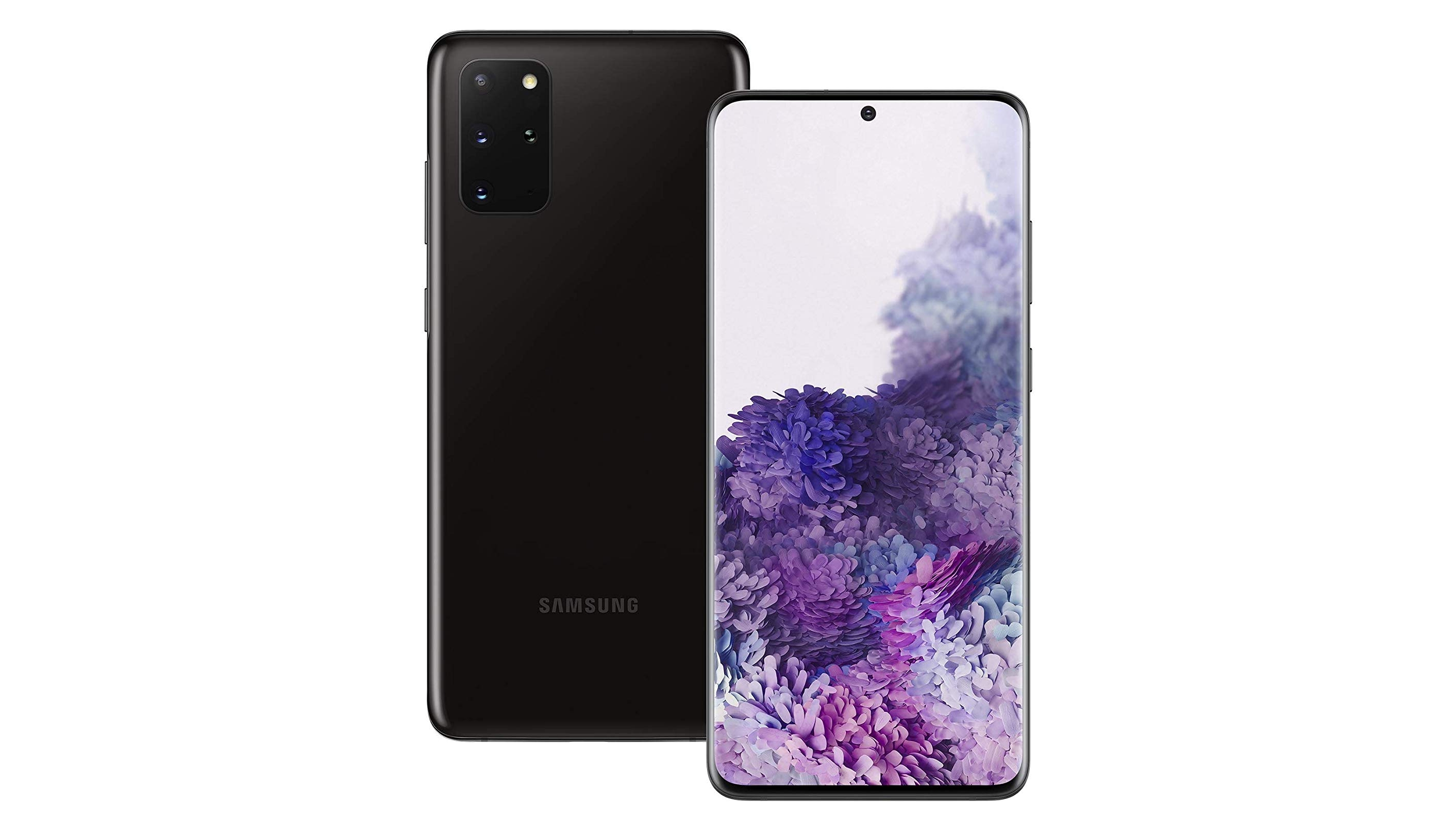
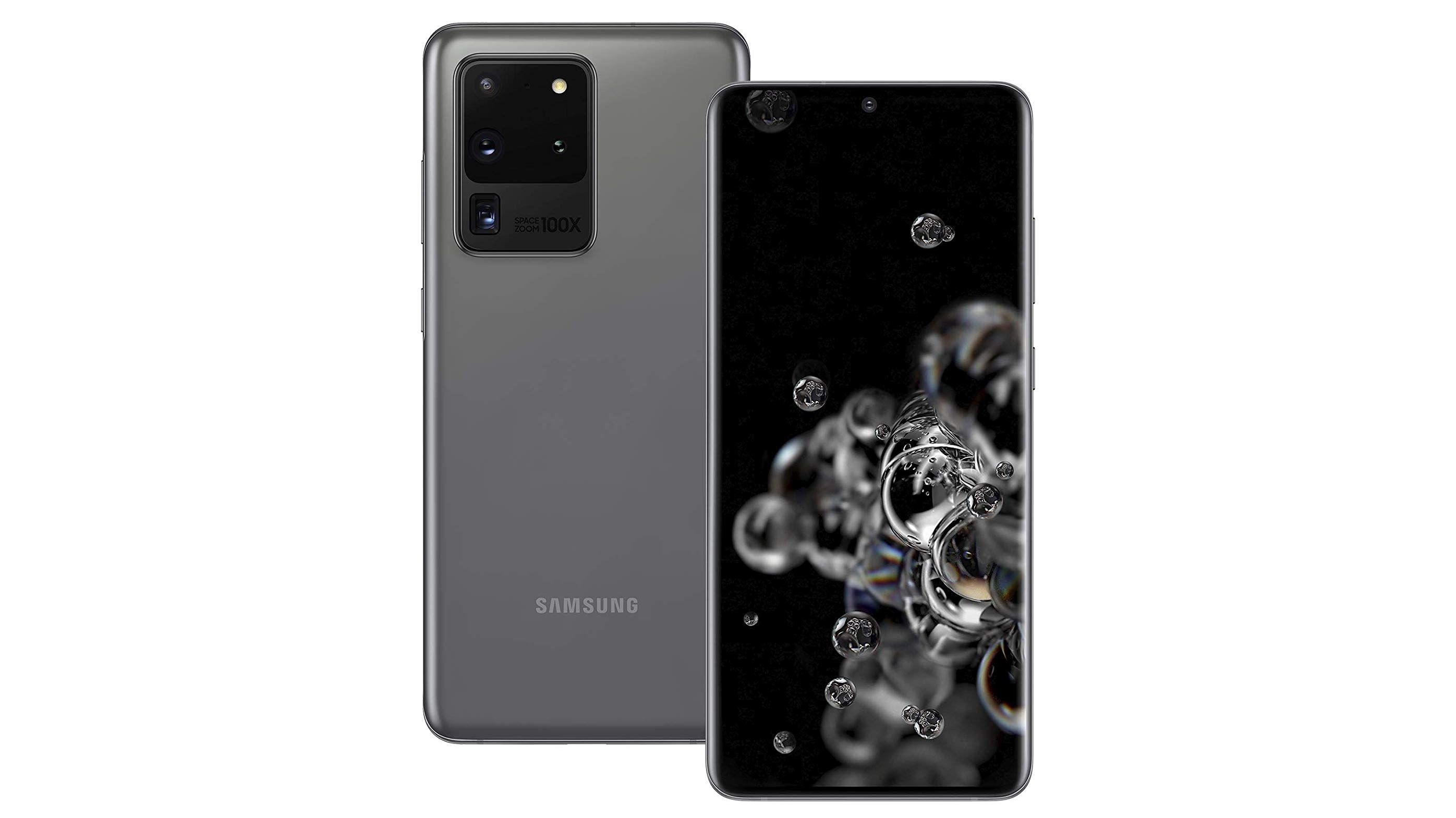
Samsung Galaxy S20 Ultra
Compared to the S20+ this isn't a massive leap, but is a bit like a super-tuned version of that handset. It's once again vailable in 128 and 512GB versions but there are now only two colour options - and they're not exactly colours - cosmic black or cosmic grey.
It's 0.2-inches bigger than the S20+ at a huge 6.9-inches but where the Ultra really differs from the other handset is in the form of the camera. It has a 100x rather than 30x zoom while the megapixel count is similarly supersized; a huge 108 megapixel sensor sits alongside a 48 megapixel telephoto.
The 100x zoom isn't the most practical of features, but it is fun and does impress even if you won't be using it every day.
Vodafone 5G coverage
Like other UK providers, Vodafone is using mid-band spectrum for its 5G services that are close to the frequencies used by 4G.
They are not using higher frequency technologies unlike many of the US networks who are deploying limited amounts of millimetre wave (mmWave) from the off. mmWave promises higher speeds but the coverage is shorter range and so requires more nodes. As with other UK providers, Vodafone hasn't said anything about mmWave rollout, but that has to be in its sights longer-term for urban areas.
The network is experimenting with 5G standalone technology, however and Vodafone has announced a commercial pilot of 5G Standalone services in London, Manchester and Cardiff after a trial at Coventry University. It's the UK’s first live deployment to test 5G SA at scale, the idea being to allow commercial partners to test new SA-devices on a live network, and work with 5G technologies such as network slicing and time-sensitive networking (TSN).
Naturally, to get Vodafone 5G, you’ll need to be in an area that has 5G coverage. Remember that, if you’re in an area that doesn’t have 5G, your phone will just step down to 4G, 3G or 2G and will switch back to 5G when available.
Vodafone is citing peak 5G speeds of peak speeds of 1Gbps - we’ve seen around 900Mbps next to a mast at Vodafone’s Newbury HQ - and average speeds of 150-200Mbps in other areas we’ve tried the signal.
We’ve seen speeds hit around 180Mbps while out and about in a couple of Vodafone 5G locations. It’s early days though, and real-world speeds will increase as the 5G rollout goes on.
Vodafone has a long-standing network sharing deal with O2 which it has now extended for 5G. The benefit to this is extensive, enabling both networks to roll out 5G services quicker, particularly in areas where it may not have been cost-effective to deploy 5G otherwise.
Vodafone and O2 reached a quick agreement after the second UK 5G auction in early 2021. They traded spectrum bands to create more efficient blocks of spectrum for each operator.
"Large contiguous blocks support faster speeds, lower latency and greener 5G services," said Vodafone and O2 in a statement.
"The move will, subject to approval from Ofcom, create a contiguous block of 80Mhz for O2, and ensure good proximity of Vodafone’s blocks totalling 90MHz of spectrum."
Ahmed Essam, CEO of Vodafone UK, said: "Over the last year Vodafone has kept the UK connected. We have invested in our network to deliver brilliant coverage for both calls and data, where and when our customers need it. And we have connected those most in need, from NHS and care workers to children needing to get online to continue their learning at home, and job seekers who have been left without work due to the pandemic.
"The result of this auction and our agreement with O2 will help us continue our mission of connecting our customers for a better future. It means we have the best possible spectrum to continue giving our customers a fast and reliable 5G service. It will also enable us to open up amazing new possibilities for our enterprise customers, putting Britain at the forefront of innovation in vital areas like assisted surgery, remote training, and factory automation.”
Vodafone used a lot of Huawei equipment on the radio access side and was affected by the mid-2020 UK Government ruling that UK 5G networks need to remove Huawei gear over the coming years. Along with other UK vendors, Vodafone wasn't a fan of the news, with Vodafone CTO Scott Petty telling Reuters that "the UK’s leadership in 5G will be lost if mobile operators are forced to spend time and money replacing existing equipment".
"We are not tied to one supplier, but it is important to understand the extent of what is at stake here," he added.
Subsequently, Vodafone signed a deal with Samsung so it can deploy its virtualised Radio Access Network (vRAN) in the UK, as well as radios and other equipment to enable 4G and 5G coverage. It'll be the first rollout of Samsung's vRAN tech for 5G in Europe.
In January 2020 Vodafone announced that it and O2 had deployed the first shared 5G sites - known as multi-operator radio access network (MORAN) technology. Vodafone says the key benefits are the reduction in energy use as well as the number of masts needed.
Within the agreement there is also provision for each network to ‘do their own thing’ at around 2,700 sites in 23 of the UK’s largest locations - that’s around 16 percent of Vodafone’s mast sites. At these places each network will install its own fibre backhaul connection and radio gear while still sharing the mast.
The separate arrangement means each network can keep control of its busiest locations and also deploy future tech that, presumably, it doesn’t want the other to access. At other locations, all the gear will be shared.
Interestingly, Vodafone has also started to share some of its 2600MHz frequency 4G spectrum with StrattoOpencell to offer high-speed mobile broadband in remote areas without fibre connectivity - the plan was hatched after Ofcom's decision in July 2019 to enable mobile operators to share spectrum.
StrattoOpencell will start to provide 120Mbps mobile broadband services to some users in Devon through a bunch of 4G outdoor small cells.
Obviously, this doesn't affect the 5G rollout for now, but it's an interesting method that could have implications for how 5G is rolled out to rural areas, too.
Vodafone 5G deals
Alongside the launch of 5G, Vodafone also announced a bunch of Unlimited data plans called Unlimited Lite, Unlimited and Unlimited Max plans, all of which are 5G-ready. These are also available for business users (at prices excluding UK VAT).
If you’re getting a 5G plan for a business, you get a three month trial of Secure Net for protection against malicious sites and apps while you’re connected to the mobile network. Thereafter it will cost £1 a month - and you’ll need to make sure you cancel it if you don’t want it otherwise you will be automatically charged.
All three tariffs offer you completely unlimited 5G downloading, but they do so at different speeds and you need to be aware that some of these tariffs are not going to give you a great experience. After all, if you've got a 5G phone you want to be able to use it to the best of its ability - and that is not using a restricted speed tariff.
Our pick of the deals is Unlimited Max which offers you the maximum speed available for £30 a month (£25 ex-VAT for business). Below that, Unlimited Lite (£23 a month, £19.17 ex-VAT for business) and Unlimited (£26 a month, £21.67 ex-VAT for business) offer relatively poor download speeds of 2Mbps and 10Mbps respectively, so aren’t really worth the cost-saving.
Now, Vodafone has also introduced Evo, which is a flexible upgrade plan a bit like O2 Refresh. You can combine it with broadband should you wish - Vodafone Together - and it's available with selected phones only.
At launch Vodafone offered Evo alongside iPhone 12 and Samsung Galaxy S21 costing £21 per month (with a £29 upfront cost) if you want the Samsung Galaxy S21 or £27 per month (with a £29 upfront cost) if you want the iPhone 12 instead.
The plan will also give you a saving if you want to add a smartwatch to it, as well.
An Unlimited plan is a good idea for 5G downloads, because in our experience downloading over 5G can eat through data quickly.
However, you are also able to get Vodafone’s Red tariffs for 5G.Red 1 (1GB, £11), Red 2 (5GB, £15) and Red 3 (20GB, £20) all have unlimited minutes and texts. The Red plans include roaming in 48 destinations as standard. Unlimited Max includes roaming in 77 destinations.
Consumer customers can add an entertainment pack for just £6 a month and choose from Spotify, Amazon Prime Video, Sky Sports Mobile or Now TV.
For gamers, Vodafone has also teamed up with the Hatch game streaming service to offer three months free with any new Vodafone 5G phone.
As we mentioned, Vodafone is offering 5G roaming as part of this, currently available in the 5G-enabled areas of Ireland, Spain, Germany and Italy. You can find out exactly where you can get 5G roaming at Vodafone's site, but it includes Berlin, Bremen, Dortmund, Dusseldorf, Frankfurt, Hamburg Leipzig, Munich and Stuttgart in Germany. In Spain, Madrid, Barcelona, Valencia, Seville and Malaga are among those covered. Bologna, Milan, Naples, Rome and Turin are the places that have 5G in Italy. While in Ireland, Cork, Dublin, Galway, Limerick and Waterford all have 5G networks that Vodafone customers can roam on.
As we mentioned above, Vodafone also has a combined fixed line broadband and 5G mobile tariff called Vodafone Together. This is available on a single bill and for a single set amount of £47 a month (combined 18 month SIM-Only and home broadband plan). New or upgrading broadband customers will also get a free Free Google Nest Hub Max, too.
If you opt for Vodafone Together plan, you can choose from two home broadband plans giving guaranteed minimum download speeds of 25Mbps (Superfast 1) or 55Mbps (Superfast 2).
Both those deals will get you unlimited broadband and a six-month free trial of the F-Secure SAFE security software.
Vodafone is also offering a free Apple TV 4K device with all new Vodafone Together sign-ups. And there's also a limited offer of a free year of the Apple TV+ streaming service for the initial signups, too (up to six family members can share a subscription with Family Sharing).
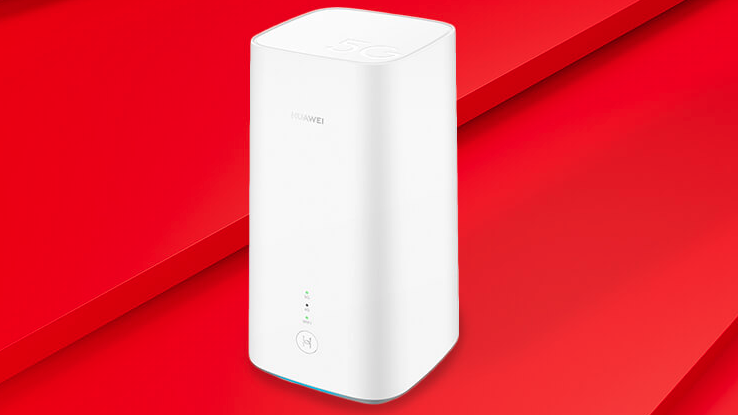
Vodafone 5G broadband
Vodafone has also announced its broadband service that uses Huawei’s Huawei 5G CPE Pro router that Vodafone markets as its 5G Gigacube. It’s essentially a wireless router that has a nano SIM in it - there’s no fixed line connection, it just needs power.
You can, however, cable two devices like a Powerline network or games console directly into the router, it doesn’t just cater for wireless devices. Because it only needs power, you can theoretically use it anywhere, but it’s 21cm high so it’s not exactly portable.
The business and consumer Gigacube tariffs are, essentially the same but Vodafone clearly sees the potential for Gigacube to help teams to work remotely en mass - such as at a corporate event, trade show or other temporary location.
For Vodafone’s 5G broadband, you’ll obviously need to be in one of the Vodafone 5G areas mentioned above (although the router will still use 4G if you can’t get 5G at any point). You can connect up to 64 devices to the Gigacube.
Contracts are available in two versions - 18 months or a rolling 30 day contract.
The 18 month tariffs are available in both business and consumer versions. There’s an introductory offer to get unlimited data for £50 a month with £50 up front (£41.67 ex-VAT for business). 200GB per month costs £40 (£33.33 ex-VAT for business), while 100GB a month costs £30 (£25 ex-VAT for business).
If you want a rolling 30 day tariff, you’ll need to pay £325 up front for the router, but you can then pay the same monthly amounts. Therefore, it’s currently better to take out the 18 month contract as you get the router for £50.
Vodafone has also announced Vodafone Gigafast Broadband which will bring even faster connections to 15 UK towns and cities including Birmingham, Bristol and Liverpool in the first phase. This is a full fibre service so Fibre To The Premises (FTTP). Vodafone is introducing it after striking a deal with Openreach (formerly BT Openreach). The service promises potential speeds of up to 900Mbps, so download speeds up to 20 times faster and upload speeds 150 times faster than the UK's average home broadband connection in the UK.
The service is available in Birmingham, Bristol and Liverpool initially. Vodafone already has 12 other fibre roll-outs under its agreement with CityFibre in Aberdeen, Bournemouth, Coventry, Huddersfield, Milton Keynes, Peterborough and Stirling with additional places to follow.
Openreach chief Clive Selley said: “Our full fibre broadband network already covers more than 1.9 million premises in the UK. We’re keen to upgrade customers as quickly as possible to this new, ultrafast, future-proof platform.
"We’re determined to be the partner of choice for all Communications Providers and we’ll do that by offering the best connectivity and service with the widest possible coverage throughout the country.”
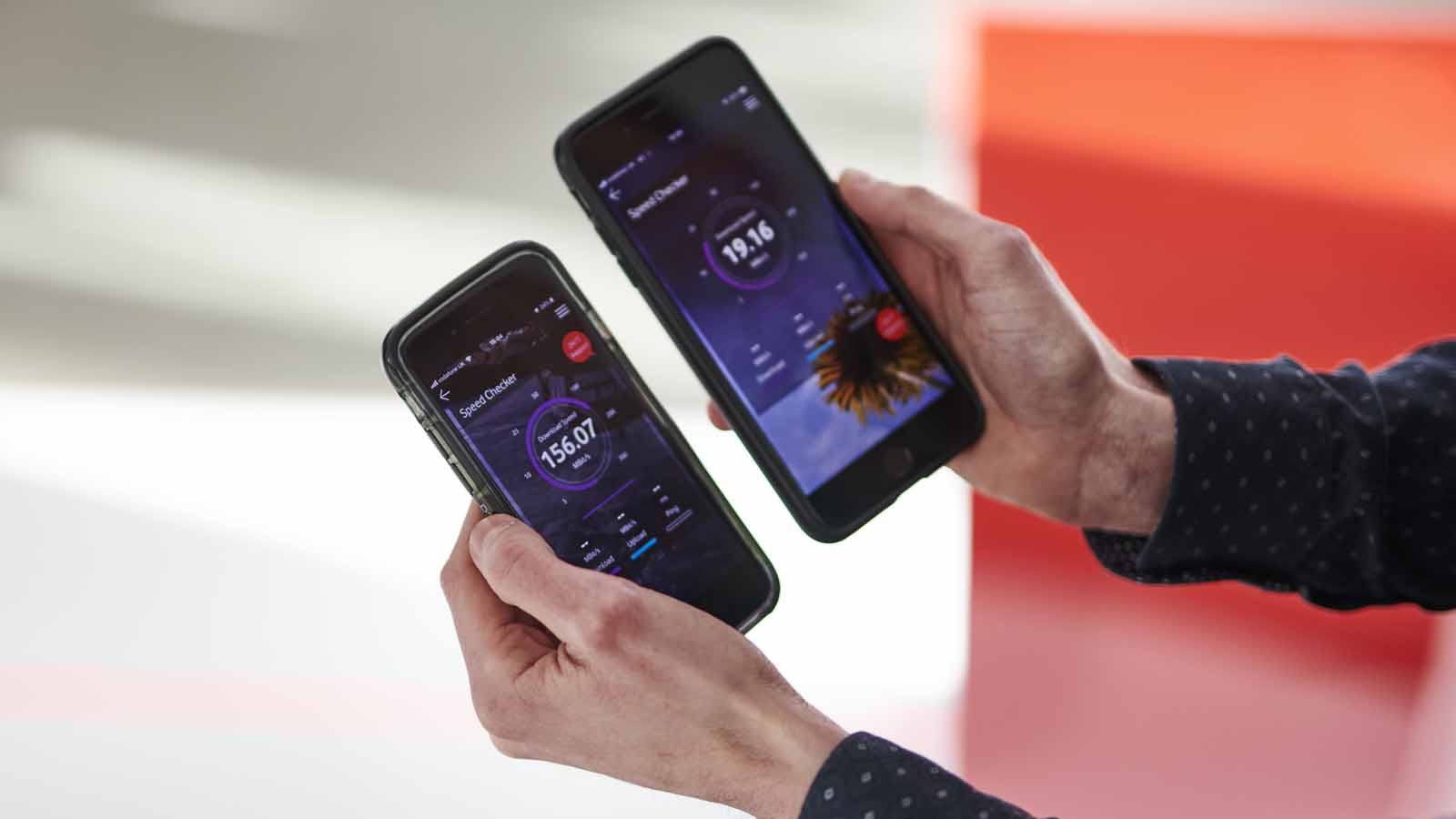
Vodafone 5G business
Vodafone believes that 5G will be transformational for businesses, bringing office Wi-Fi speeds to the outside and monitoring IoT (Internet of Things) devices in remote locations. Real-time capabilities will be vastly increased thanks to the reduction of latency, making things like augmented reality (AR) apps more realistic for the workplace.
Crucially, 5G will enable connectivity in crowded areas, and that will also bring new possibilities for businesses who host a lot of people, such as concert venues, stadia and shopping centres.
Vodafone has 5G demonstration areas at its Digital Innovation Hub in MediaCity, Manchester as well as in the Customer Experience Centre at its Newbury HQ.
One of its latest 5G trials is in the area of assisted surgery and the results will be used in the diagnosis and treatment of colon cancer, and in colonoscopy training. The 5G pilots enable clinicians to be transported into operating theatres virtually. The trials were conducted at University Hospital of Wales and University Hospital Llandough.
Tech company Proximie enables clinicians to transport themselves virtually into operating theatres. Vodafone worked with Proximie to provide colonoscopy training to nurses so more patients can be seen in a shorter time. It will also ensure higher-quality service by connecting experts from further afield.
The trial used Vodafone’s 5G in-building coverage system to power Proximie’s platform.
Vodafone is also working with UK Power Networks to help deliver Constellation, the electricity network operator’s smart substation trial. The idea is to make the substations more efficient by installing computers in each location to monitor and manage the substations. General Electric, the University of Strathclyde, ABB and Siemens are also involved with the work with the aim being that each substation will be able to respond to changes to the electricity network or demands caused by large numbers of new types of devices being attached to the grid such as electric cars.
For business, Vodafone has the same range of 5G devices that we've shown above, however, the prices it is showing are only for the 2mbps unlimited tariff.
Vodafone also has a V-Hub online knowledge centre for businesses and as of July 2021 the network says that it has helped over 136,000 small and medium-sized businesses since its launch at the height of the COVID-19 pandemic.
The hub was designed to help with the shift to onlineonmly business and assist with the move to home working where many businesses were dealing with new issues around remote working, cybersecurity and lack of knowledge around the tools that were available to them.
SIGN UP FOR E-MAIL NEWSLETTERS
Get up to speed with 5G, and discover the latest deals, news, and insight!










